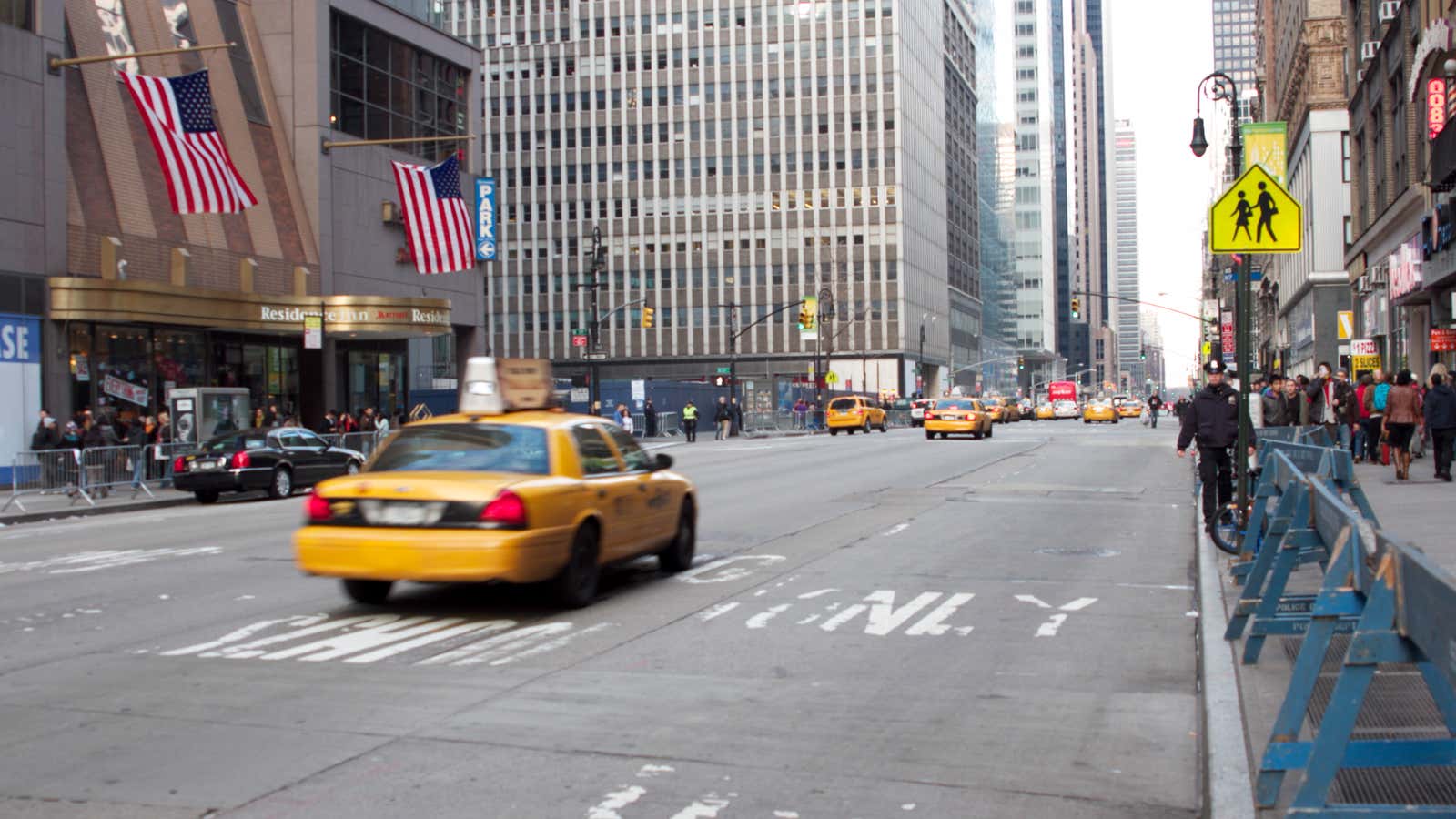When NBC told billionaire Donald Trump “you’re fired” for calling foreigners freeloaders, it didn’t stop him from going on to blithely launch his bid for president. As an immigrant who couldn’t take over my father’s lucrative business the way Trump did, losing my job terrified me.
In August 2006, I interviewed at rehab clinics, getting no offers. No openings at the hospital where my brother Eldin practiced physical therapy. “Send a resume to Pete,” suggested Eldin’s coworker who’d interned at Pete’s Greenwich Village office. Pete was Irish, in his 40s, tall with blond tousled hair, in chinos and an untucked shirt. I was a broke 25-year-old Bosnian Muslim refugee with an accent and short brown hair, stiff in my only suit.
“Where are you from?” he asked.
“Bosnia,” I answered.
I didn’t say I’d been exiled here at 13, during the Balkan War when my family lost everything. Or that my Serb karate coach came to our door with an AK-47, shouting, “You have one hour to leave or be killed,” taking my dad and brother to a concentration camp while my favorite elementary school teacher held a rifle to my head.
Pete and I chatted about sports, gym routines and how much we both loved bustling Manhattan. He was cool, athletic, married with three kids. I felt like I was catching up with a college buddy. He didn’t question me on protocols following knee or shoulder surgery. My anxiety disappeared touring his 10,000 square foot loft space, light pouring in big windows, “Here’s where you’ll do your medical notes,” he pointed. “Can you start the Tuesday after Labor Day?”
“Yes!” I’d never wanted a job so badly.
“Go meet my partner Tim in Connecticut tomorrow,” he said. “He’s opening another office there.”
Tim was taller than Pete, in his late 30s and intimidating in his business suit. He fired questions on post-surgical protocols, time lines and scientific research. I was sweating.
After he offered me a $59,000 starting salary, I rushed home to give my parents the best news they’d had in thirteen years. After barely escaping, my mother landed in JFK only to find a lump in her breast. My proud father, a popular Bosnian athletic trainer, refused welfare in his new country. He painted houses, flung chicken and bagged groceries at Stop ‘N’ Shop.
“We’ll be nobodies here so you boys can become somebodies,” Mom said when we arrived.
I started junior high an angry alien, in the same clothes I’d worn 4,300 miles away. Everyone—from the reverend who shared his home with my family, to my principal, to my classmates—was kind. By 25, I was a proud American citizen. I was desperate to be employed to start paying back my student loans.
“All your studying paid off,” Mom said. “Now you’ll be a success.”
When her cancer returned, I commuted from my job to my parents’ Westport home, to make her final days comfortable.
“Take care of your father,” she begged.
We would never put him in a nursing home. After we buried her, I moved to Astoria, one block away from my brother Eldin.
For the next eight years, I was given raises, promotions, eventually a whole month annual vacation. When my father insisted on seeing his homeland we went back to Bosnia, where I was shocked by the 45% unemployment rate. I saw how lucky I was to work for fair employers who’d become American fathers I looked up to.
In 2011, Tim and Pete split up their company, changing names. Tim expanded into the suburbs. I stayed with Pete, who became mellower and more New Age. Conservative in my medical approach, perhaps I was too resistant to push alternative healing methods to my clients. Coworkers who felt the same as I did moved on as Pete added a masseuse, mind-body healing and acupuncture to his practice. I had a sinking feeling when he asked “What are your plans?”
“How much time are you giving me, man?”
“I know this is a terrible shock after eight years, but it’ll be the best thing for you,” he said.
I felt hurt, terrified I wouldn’t be able to pay my rent and help my father. Pete gave me a two month severance.
“Take a trip, don’t look for another gig right away,” he advised.
I immediately emailed my resume everywhere, scrambling and nervous, my security and identity shaken. At 34, I worried I’d never love a job again. I called everyone I knew for leads, texting Pete’s old partner Tim. He set up a meeting. Coincidentally, he’d thought of perhaps opening a Manhattan clinic in midtown, under the name of his old business. He put his other project on hold, wanting to help me. He hired me back to run it, matching my increased salary and benefits. I wound up at the same great company as I’d started, at a new exciting location—as the one in charge.
This Labor Day, I’m glad to prove Donald Trump wrong. He apparently forgets his real estate empire was built on the backs of foreign laborers, and his German Grandfather Friedrich Drumpf worked in a Queens barbershop and red light district hotel. Meanwhile I have only gratitude for my two bosses in this miraculous country that rewarded the hard work of an immigrant kid–twice.
We welcome your comments at [email protected].
Image by Alexandre André on Flickr, licensed under CC-BY-2.0.
